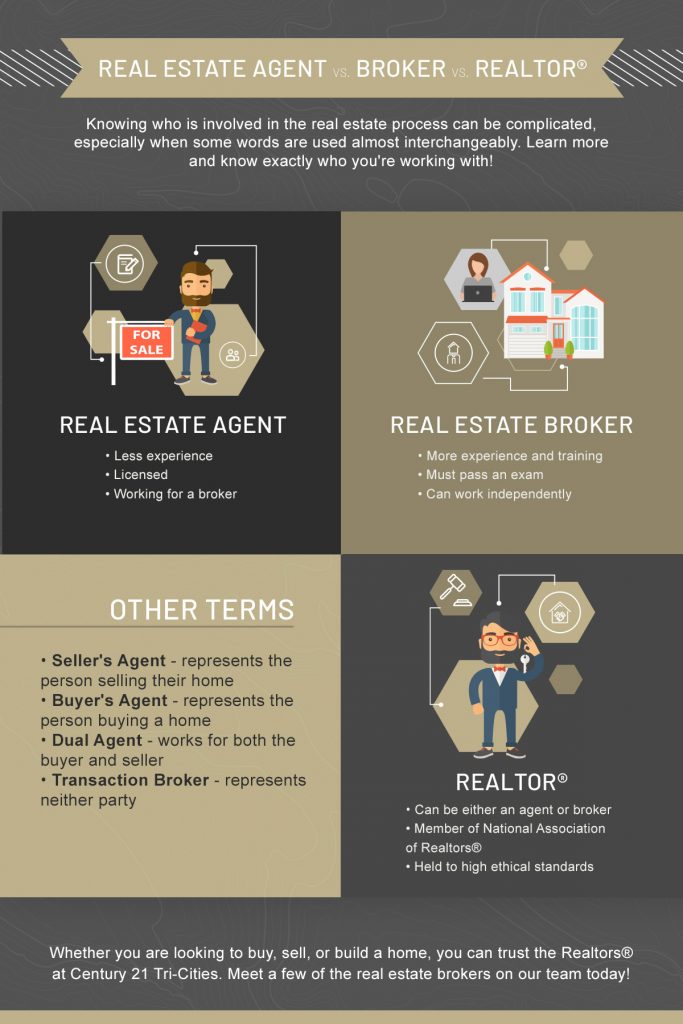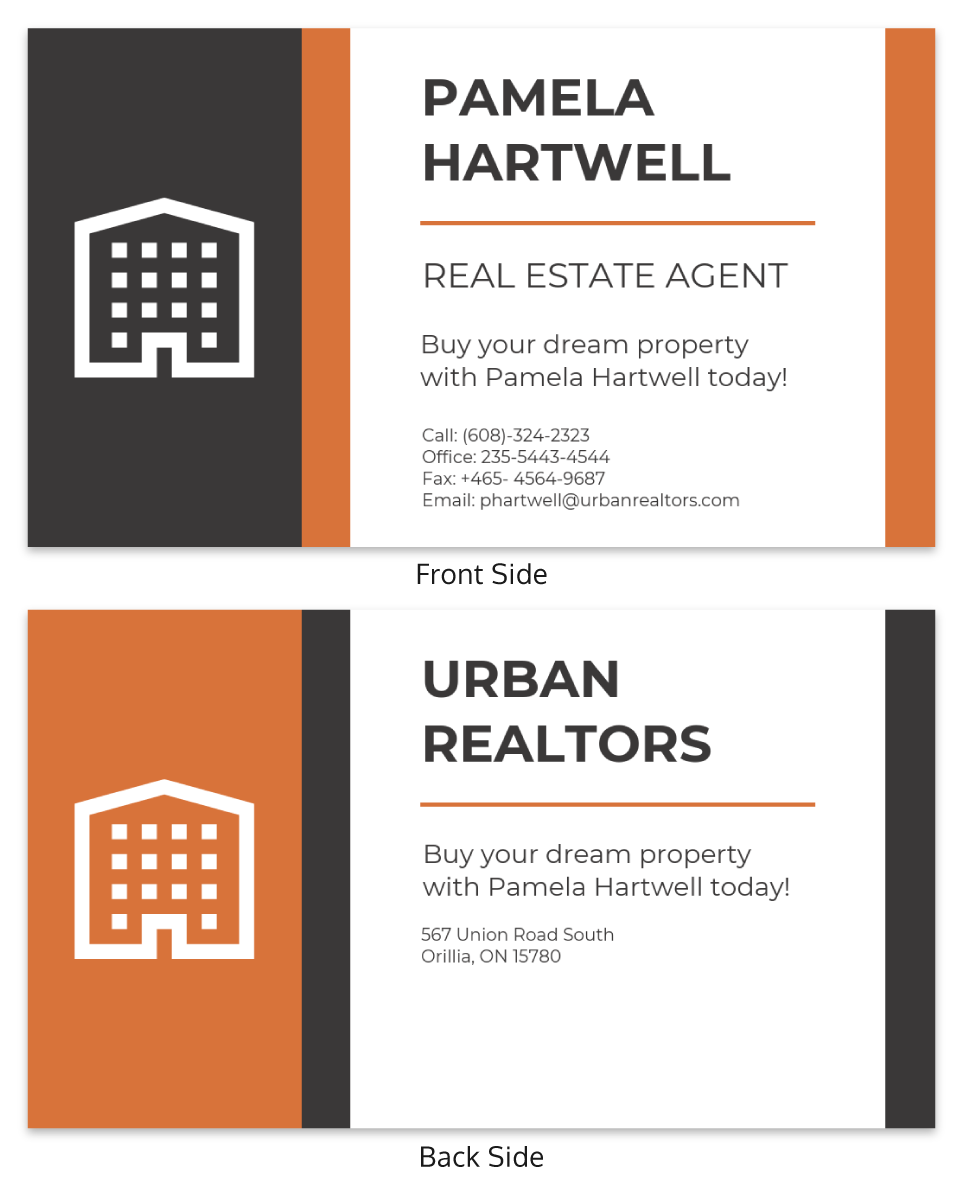
New York's typical real estate commission splits equally between the buyer and seller agent. This means that the listing agent receives 3% while the buyer’s agent earns 3.3%. Sometimes there may not be a buyer's broker, and the listing agent receives the full 6% commission. It is estimated that over 95% of listings in NYC are sold through agents. The seller signs a contract usually with the agent listing the property.
Flat fee
The real estate market in New York is unique compared to other parts of the country. Listings may include "No Fee" labels or "No Broker Fee" but if renting an apartment you will need to pay the realty agent anywhere between 8% and 15% of the annual rental. The typical commission rate for real estate agents in New York is 12%. Saving thousands of dollars can be achieved by avoiding paying commissions.

Are you buying or selling a property? The seller typically pays the commission at closing. However, if you're selling your home "For Sale by Owner," you'll pay no commission. Your listing will be listed on the local MLS for a flat fee, as with all other listings. This flat fee listing will include information about the seller as well as show instructions.
Brokerage fees
The Consumer Federation of America released a report on the differences in real estate commission rates throughout New York City. This report showed huge variations in commission rates across different areas. The typical buyer agent rate varied from 1% in Brooklyn to 3% for Manhattan. This gap in total income was even more pronounced because Manhattan homes cost significantly more than Brooklyn.
New York's real estate brokers charge fees that are negotiable. The standard brokerage fee is 15%. However, buyers and sellers can negotiate a lower price. If you are moving fast, have your paperwork in order, and have a substantial deposit, brokers will be willing to accept a lower fee. This is because brokers must assess the level of competition in their area.
Dual agency
Dual agency is a legal arrangement in real estate in which a real estate agent works for both the buyer and seller. Both the buyers and sellers have their pros and disadvantages. It can speed up the process of the transaction by resolving questions faster. This arrangement is for buyers and sellers who have lots of experience.

Dual agency has the advantage of reducing the overall transaction cost. A dual agency arrangement often results in a reduction of around one to two percent in commission. This arrangement can give both parties more negotiation power.
FAQ
What should I be looking for in a mortgage agent?
A mortgage broker is someone who helps people who are not eligible for traditional loans. They search through lenders to find the right deal for their clients. Some brokers charge a fee for this service. Other brokers offer no-cost services.
What should you think about when investing in real property?
The first thing to do is ensure you have enough money to invest in real estate. You will need to borrow money from a bank if you don’t have enough cash. Aside from making sure that you aren't in debt, it is also important to know that defaulting on a loan will result in you not being able to repay the amount you borrowed.
You should also know how much you are allowed to spend each month on investment properties. This amount should cover all costs associated with the property, such as mortgage payments and insurance.
You must also ensure that your investment property is secure. It would be best to look at properties while you are away.
How long does it take for a mortgage to be approved?
It is dependent on many factors, such as your credit score and income level. It usually takes between 30 and 60 days to get approved for a mortgage.
How do I calculate my interest rates?
Market conditions can affect how interest rates change each day. The average interest rate over the past week was 4.39%. Divide the length of your loan by the interest rates to calculate your interest rate. Example: You finance $200,000 in 20 years, at 5% per month, and your interest rate is 0.05 x 20.1%. This equals ten bases points.
How long will it take to sell my house
It depends on many factors including the condition and number of homes similar to yours that are currently for sale, the overall demand in your local area for homes, the housing market conditions, the local housing market, and others. It may take 7 days to 90 or more depending on these factors.
Statistics
- Private mortgage insurance may be required for conventional loans when the borrower puts less than 20% down.4 FHA loans are mortgage loans issued by private lenders and backed by the federal government. (investopedia.com)
- Some experts hypothesize that rates will hit five percent by the second half of 2018, but there has been no official confirmation one way or the other. (fortunebuilders.com)
- When it came to buying a home in 2015, experts predicted that mortgage rates would surpass five percent, yet interest rates remained below four percent. (fortunebuilders.com)
- It's possible to get approved for an FHA loan with a credit score as low as 580 and a down payment of 3.5% or a credit score as low as 500 and a 10% down payment.5 Specialty mortgage loans are loans that don't fit into the conventional or FHA loan categories. (investopedia.com)
- This seems to be a more popular trend as the U.S. Census Bureau reports the homeownership rate was around 65% last year. (fortunebuilders.com)
External Links
How To
How to manage a rental property
You can rent out your home to make extra cash, but you need to be careful. These tips will help you manage your rental property and show you the things to consider before renting your home.
This is the place to start if you are thinking about renting out your home.
-
What factors should I first consider? Take a look at your financial situation before you decide whether you want to rent your house. If you have outstanding debts like credit card bills or mortgage payment, you may find it difficult to pay someone else to stay in your home while that you're gone. Check your budget. If your monthly expenses are not covered by your rent, utilities and insurance, it is a sign that you need to reevaluate your finances. You might find it not worth it.
-
How much is it to rent my home? Many factors go into calculating the amount you could charge for letting your home. These include things like location, size, features, condition, and even the season. You should remember that prices are subject to change depending on where they live. Therefore, you won't get the same rate for every place. The average market price for renting a one-bedroom flat in London is PS1,400 per month, according to Rightmove. This means that you could earn about PS2,800 annually if you rent your entire home. While this isn't bad, if only you wanted to rent out a small portion of your house, you could make much more.
-
Is it worth it? There are always risks when you do something new. However, it can bring in additional income. Make sure that you fully understand the terms of any contract before you sign it. Your home will be your own private sanctuary. However, renting your home means you won't have to spend as much time with your family. These are important issues to consider before you sign up.
-
Are there any benefits? It's clear that renting out your home is expensive. But, you want to look at the potential benefits. You have many options to rent your house: you can pay off debt, invest in vacations, save for rainy days, or simply relax from the hustle and bustle of your daily life. No matter what your choice, renting is likely to be more rewarding than working every single day. If you plan well, renting could become a full-time occupation.
-
How can I find tenants Once you've decided that you want to rent out, you'll need to advertise your property properly. Listing your property online through websites like Rightmove or Zoopla is a good place to start. Once potential tenants contact you, you'll need to arrange an interview. This will help you assess their suitability and ensure they're financially stable enough to move into your home.
-
How do I ensure I am covered? If you don't want to leave your home empty, make sure that you have insurance against fire, theft and damage. Your landlord will require you to insure your house. You can also do this directly with an insurance company. Your landlord may require that you add them to your additional insured. This will cover any damage to your home while you are not there. If your landlord is not registered with UK insurers, or you are living abroad, this policy doesn't apply. In such cases, you will need to register for an international insurance company.
-
You might feel like you can't afford to spend all day looking for tenants, especially if you work outside the home. But it's crucial that you put your best foot forward when advertising your property. A professional-looking website is essential. You can also post ads online in local newspapers or magazines. Also, you will need to complete an application form and provide references. Some prefer to do it all themselves. Others hire agents to help with the paperwork. Either way, you'll need to be prepared to answer questions during interviews.
-
What happens once I find my tenant If there is a lease, you will need to inform the tenant about any changes such as moving dates. If this is not possible, you may negotiate the length of your stay, deposit, as well as other details. While you might get paid when the tenancy is over, utilities are still a cost that must be paid.
-
How do I collect my rent? You will need to verify that your tenant has actually paid the rent when it comes time to collect it. You will need to remind your tenant of their obligations if they don't pay. After sending them a final statement, you can deduct any outstanding rent payments. If you are having difficulty finding your tenant, you can always contact the police. They won't normally evict someone unless there's been a breach of contract, but they can issue a warrant if necessary.
-
How can I avoid potential problems? It can be very lucrative to rent out your home, but it is important to protect yourself. Install smoke alarms, carbon monoxide detectors, and security cameras. Check with your neighbors to make sure that you are allowed to leave your property open at night. Also ensure that you have sufficient insurance. Finally, you should never let strangers into your house, even if they say they're moving in next door.